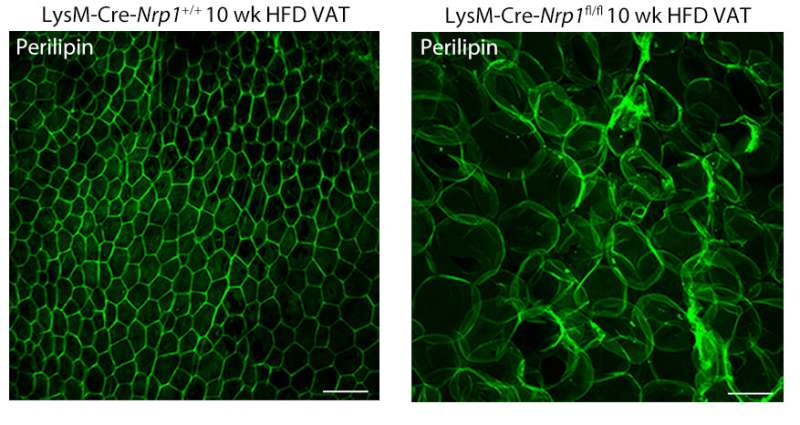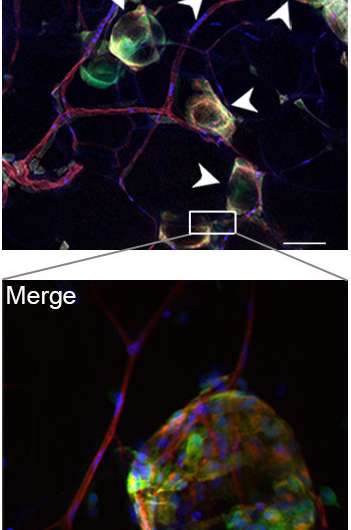Obesity and health problems: New research on a safeguard mechanism

Obesity and its negative impacts on health - including metabolic syndrome, type-2 diabetes mellitus and cardiovascular complications - are a global pandemic (Taubes, 2009). The worldwide incidence of obesity has more than doubled since 1980, and in 2014 more than 1.9 billion adults were overweight - and of these, 600 million were obese (World Health Organisation, 2015).
It is believed that obesity induced metabolic syndrome is caused by excessive fat accumulation that triggers detrimental inflammation and prevents organs from functioning adequately (Olefsky and Glass, 2010). Consequences include poor regulation of blood sugar levels.
Now, however, a new study published in Science Immunology and led by Dr. Przemyslaw (Mike) Sapieha, a professor at the Université de Montréal and researcher at Maisonneuve-Rosemont Hospital, reveals that not all inflammation during weight gain is bad. In fact, a type of inflammatory white blood cell called a Neuropilin1-positive macrophage is critical for preparing fat tissue for healthy weight gain.
Body fat is made up of billions of cells called adipocytes that store energy. Depending on how many calories we intake, adipose tissue (body fat) expands or contracts. In order for fat tissue to expand in a healthy manner, it must first be prepared, much like a garden must be plowed before planting seeds.
Dr. Ariel Wilson, a senior postdoctoral fellow in Dr. Sapieha's team and lead author of the new study, found that Neuropilin1-positive macrophage immune cells accumulate in fat tissue and orchestrate healthy weight gain. These cells are important in removing excess fat from the body and also help build the body's infrastructure to accommodate new fat reserves without causing complications typically associated with obesity.

The study also demonstrates that transferring Neuropilin1-positive immune cells (through the bone marrow) to mice that lack them actually helps the animals regain control of their blood sugar levels and makes the animals metabolically healthier in general.
In sum, this study demonstrates that a subset of immune cells is critical for ensuring healthy weight gain. The study's findings are important in helping understand the complications that arise from obesity.
More information: Ariel Molly Wilson et al. Neuropilin-1 expression in adipose tissue macrophages protects against obesity and metabolic syndrome, Science Immunology (2018). DOI: 10.1126/sciimmunol.aan4626

















